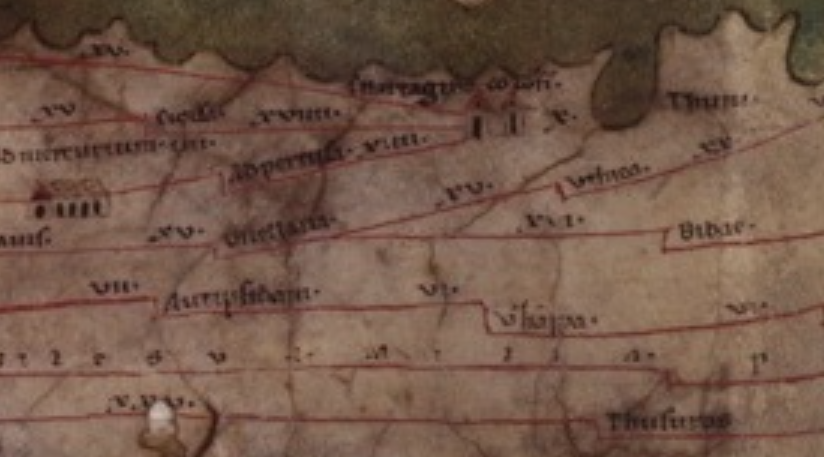Utimmira on:
[Wikipedia]
[Google]
[Amazon]
 Utimmira was an
Utimmira was an 
ancient
Ancient history is a time period from the History of writing, beginning of writing and recorded human history to as far as late antiquity. The span of recorded history is roughly 5,000 years, beginning with the Sumerian language, Sumerian c ...
Roman town of the Roman province
The Roman provinces (Latin: ''provincia'', pl. ''provinciae'') were the administrative regions of Ancient Rome outside Roman Italy that were controlled by the Romans under the Roman Republic and later the Roman Empire. Each province was rule ...
of Africa Proconsularis
Africa is the world's second-largest and second-most populous continent, after Asia in both cases. At about 30.3 million km2 (11.7 million square miles) including adjacent islands, it covers 6% of Earth's total surface area ...
. The town was somewhere near Carthage
Carthage was the capital city of Ancient Carthage, on the eastern side of the Lake of Tunis in what is now Tunisia. Carthage was one of the most important trading hubs of the Ancient Mediterranean and one of the most affluent cities of the classi ...
in today's Tunisia
)
, image_map = Tunisia location (orthographic projection).svg
, map_caption = Location of Tunisia in northern Africa
, image_map2 =
, capital = Tunis
, largest_city = capital
, ...
, but the exact location has been lost to history.
Utimmira was the seat
A seat is a place to sit. The term may encompass additional features, such as back, armrest, head restraint but also headquarters in a wider sense.
Types of seat
The following are examples of different kinds of seat:
* Armchair (furniture), ...
of an ancient episcopal see
An episcopal see is, in a practical use of the phrase, the area of a bishop's ecclesiastical jurisdiction.
Phrases concerning actions occurring within or outside an episcopal see are indicative of the geographical significance of the term, mak ...
, suffragan of Archdiocese of Carthage. Only two bishops attributed to this diocese: the Catholic Severo, who intervened at the Council of Carthage (411)
The Councils of Carthage were church synods held during the 3rd, 4th, and 5th centuries in the city of Carthage in Africa. The most important of these are described below.
Synod of 251
In May 251 a synod, assembled under the presidency of Cyprian ...
and Bishop Reparato, who took part in the Council of Carthage (484)
The Councils of Carthage were church synods held during the 3rd, 4th, and 5th centuries in the city of Carthage in Africa. The most important of these are described below.
Synod of 251
In May 251 a synod, assembled under the presidency of Cyprian ...
called by the Vandal
The Vandals were a Germanic people who first inhabited what is now southern Poland. They established Vandal kingdoms on the Iberian Peninsula, Mediterranean islands, and North Africa in the fifth century.
The Vandals migrated to the area betw ...
king Huneric
Huneric, Hunneric or Honeric (died December 23, 484) was King of the (North African) Vandal Kingdom (477–484) and the oldest son of Gaiseric. He abandoned the imperial politics of his father and concentrated mainly on internal affairs. He was m ...
, after which Reparato was exiled to Corsica.
Today Utimmira survives as titular bishop, the current bishop is Andrés Vargas Peña
Andres or Andrés may refer to:
*Andres, Illinois, an unincorporated community in Will County, Illinois, US
*Andres, Pas-de-Calais, a commune in Pas-de-Calais, France
*Andres (name)
*Hurricane Andres
* "Andres" (song), a 1994 song by L7
See also ...
, of Mexico City.

References
Ancient Berber cities Roman towns and cities in Tunisia Catholic titular sees in Africa Former Roman Catholic dioceses in Africa {{Tunisia-stub